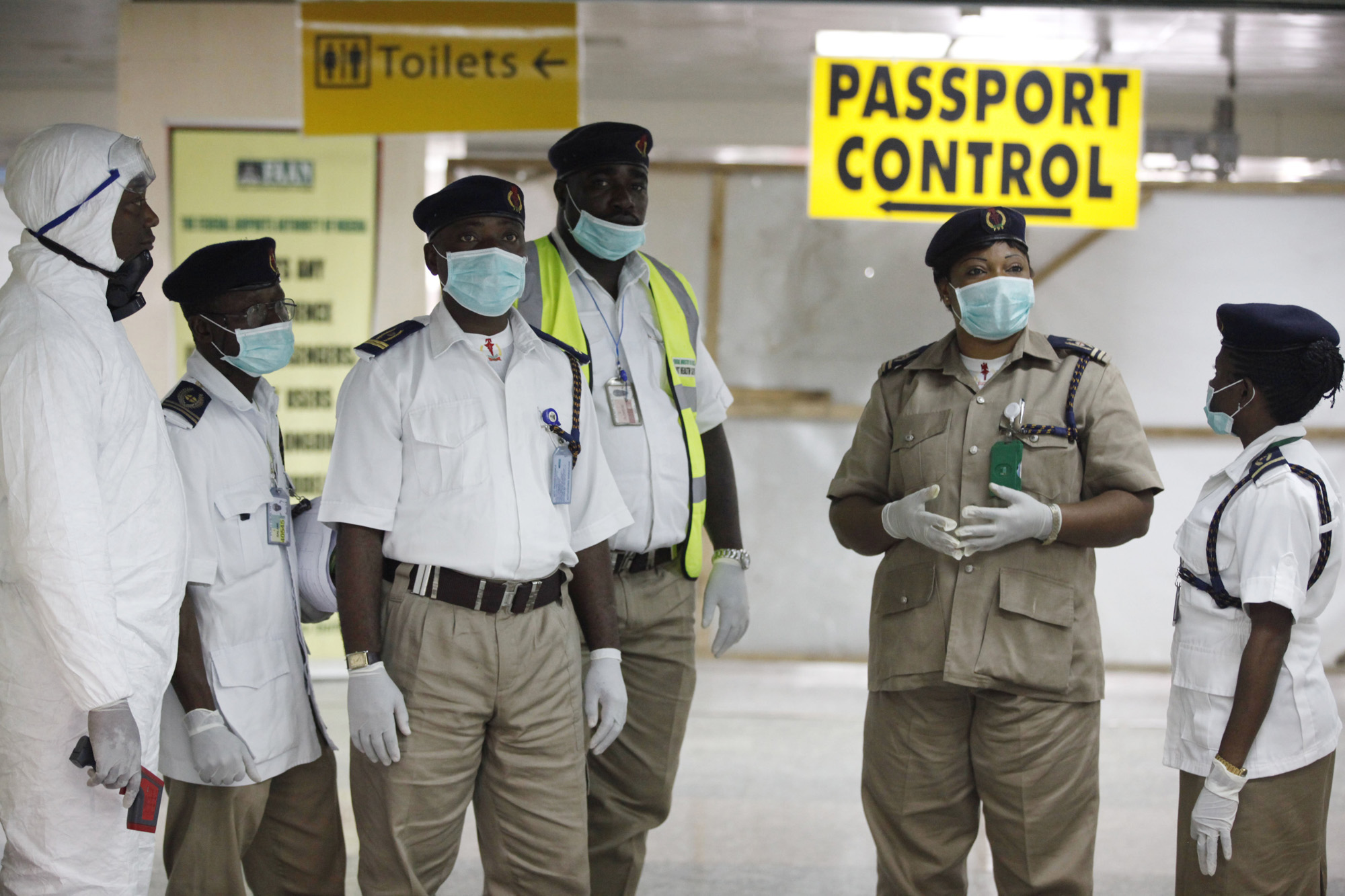
Ebola is still running rampant in parts of West Africa. Over 1,500 people have died in Guinea, Sierra Leone and Liberia, where authorities have risked unrest by imposing nationwide curfew and quarantine zones.
But in nearby Nigeria, the government has largely contained Ebola in a single cluster traced back to the first imported case, and reported a total of only six deaths. The death of a doctor in Port Harcourt, in the south of the country, initially raised fears of a second outbreak when it was revealed on Thursday—but it soon emerged that his infection was also linked to the first Ebola case.
Health experts say that while more Ebola cases can’t be ruled out, Nigerian authorities quickly and effectively reacted to contain the disease, tracking people who had contact with patients, conducting widespread testing and quarantining suspected victims. “The response of the government has been robust,” said John Vertefeuille, who leads the Nigeria Ebola response team of the U.S. Centers for Disease Control and Prevention (CDC).
Ebola arrived in Nigeria on July 20, when Liberian-American financial consultant Patrick Sawyer flew from Liberia to Lagos, Nigeria’s commercial capital. Sawyer collapsed at the airport and was taken immediately to hospital, reducing chances of infecting more people in Lagos, a city of more than 21 million people.
He infected a few people before he was isolated, as doctors didn’t initially suspect Ebola and didn’t take full precautions. All other confirmed cases were traced back to him; eight have recovered, with only one case still being treated in isolation.
When the government realized Ebola had arrived on Nigerian soil, it acted quickly to coordinate international health organizations including the CDC, the World Health Organization, and recently Médecins Sans Frontières. It invited those groups to “come to the table and… insert themselves into those structures that the government has formed,” said Vertefeuille.
The work is divided into the management of confirmed cases who are treated in an isolation center in Lagos, and epidemiology and contact tracing, key to containing the virus.
Confirmed cases are treated in isolation, while those the victims made contact with pre-diagnosis are visited daily at their homes. If they develop symptoms, they too are taken to quarantine and tested. Nigeria began its program of contact tracing with Sawyer, and currently has more than 100 people under surveillance in Lagos.
But one man slipped through the net, Health Minister Onyebuchi Chukwu said Thursday. A Nigerian man who had contact with Sawyer developed symptoms and evaded surveillance, traveling to the oil industry hub of Port Harcourt last month, where he was treated by a doctor for his symptoms.
The man recovered and returned to Lagos four days later, after a manhunt for him had begun. The doctor, however, had contracted the virus and died on Aug. 22. The government has now begun contact tracing for him, and 70 people are now under surveillance there.
The man who escaped surveillance was an isolated case, Chukwu said. The fact that most people being treated at hospital have survived and were soon discharged has encouraged people under surveillance to cooperate. “Initially when we started we had one or two stubborn cases, but now they’re all cooperating,” he said.
As well as taking a rapid response approach to Ebola cases, the government has also been acting to stop the spread of misinformation about the disease. It has been issuing bulletins explaining how the disease spreads, and attempting to dispel rumors about unorthodox “cures” that have spread on the streets and on social media.
Benjamin Akinola, a 65-year-old retired army officer, said he and his wife bathed with and drank water with salt after a rumor suggested it could prevent Ebola. They stopped after hearing on the radio that it led to the death of some people. “People stopped it, and this is what the government is telling us,” said Akinola.
The government has also been pushing for better personal hygiene practice. Guards at supermarkets, banks, restaurants, and clubs will often spray people’s hands with sanitizers before entering.
The public relations operation seems to be working. Lawrence Obioha, a 43 year old newspaper seller in Lagos said initially fewer people attended his Sunday church service out of fear of Ebola. “Gradually it’s picking up,” he said. “There’s a lot of relief now that they know that at least there’s a response to treatment.”
While fears that Africa’s most populous country would become a breeding ground for the disease have so far proven unfounded, officials in Nigeria are under no illusion that the virus has been stamped out. “We have not eliminated the disease. We have not eradicated it,” said Chukwu. Over 200 remain under observation, and the infection is still raging in Sierra Leone, Guinea and Liberia. The battle against Ebola will continue in Nigeria for some time yet.
“This really could be a long and a hard fight,” said David Daigle, a spokesman for the CDC team on Ebola in Nigeria. “We’re optimistic, but we know that this is like a forest fire and if there’s just one ember left in place it could easily start back up.”
More Must-Reads From TIME
- The 100 Most Influential People of 2024
- The Revolution of Yulia Navalnaya
- 6 Compliments That Land Every Time
- What's the Deal With the Bitcoin Halving?
- If You're Dating Right Now , You're Brave: Column
- The AI That Could Heal a Divided Internet
- Fallout Is a Brilliant Model for the Future of Video Game Adaptations
- Want Weekly Recs on What to Watch, Read, and More? Sign Up for Worth Your Time
Contact us at letters@time.com